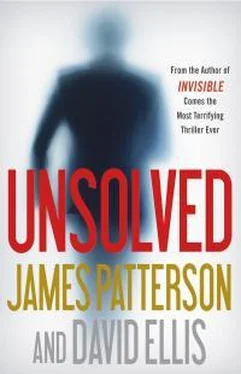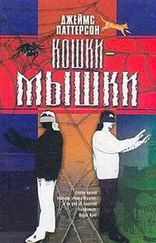“It was fine,” I say.
“Are you still at Harrison’s?”
I’ve never understood why she likes to call him by his first name. “No, I’m home.”
“I don’t know why you don’t just marry him. Or at least move in with him. Don’t you think it’s time you stopped fooling around?”
I touch my face. “You’re right.” The easiest path with my mother is swift surrender.
But she won’t let me surrender. “Listen, kiddo, once you find the person you want to spend the rest of your life with, you want the rest of your life to begin as soon as possible. Take it from me.”
Or from Billy Crystal in When Harry Met Sally . My mother’s advice usually comes from old movies or country songs. Next she’s going to tell me that I’ve got to know when to hold ’em, know when to fold ’em.
I seem to know when to walk away and when to run. Just ask Books.
“I’m serious now, Em. Listen to your mother. It’s time to marry that man before he gets tired of waiting.”
I grip the phone so tightly that if I had any strength right now, it would burst into pieces. “That’s good advice,” I manage.
“Take it from me,” she says, and I know she’s not going to quote some old movie or song. This time, she’s going to speak from personal experience.
“You don’t want to be alone,” she says.
28
BOOKS STRUGGLES to stay alert on the dark, predawn drive to Maryland. He’s normally a morning person, but when you haven’t slept the previous night, when you tossed and turned and paced back and forth and watched snippets of wretched movies and passed your eyes over the latest must-read novel, getting out of bed in the morning feels like starting a ten-mile run after having just completed a marathon.
He can’t focus. He was halfway through his first cup of coffee this morning before he realized he was drinking coffee-flavored hot water, that he had forgotten to put coffee grounds in the coffeemaker.
A cup of coffee without coffee. Books without Emmy.
He parks his vehicle on the curb behind the black SUV with Secret Service agents inside. The kitchen light is on in the imposing brick Victorian. Bill Moriarty is a creature of habit, and apparently nothing has changed since Books left the Bureau. The director still leaves for work at five thirty a.m., and Books would bet his modest pension that right now, Moriarty is having the single cup of coffee he allows himself along with a bowl of cornflakes lightly dusted with a sugar substitute from a blue packet.
Books waves to the agents, including Dez, the director’s head of security, and walks up the cobblestone path to the house. The FBI director, showered and scrubbed and dressed in a suit and tie, greets him at the door.
“Good God, Harry, what happened to you? ”
This takes Books back to his first case with the new FBI director. When he told Moriarty that he went by the name Books, the director seemed amused and stuck with Harry for a time. When Moriarty finally started calling him Books, Books felt like he had passed some test.
“Long night,” says Books. “This won’t take long. Hi, Betsy.”
Books waves to the director’s wife, now wheelchair-bound after a stroke five or six years ago that left her brain intact but her legs weakened enough that she cannot reliably walk. Bill built a ground-floor master bedroom and installed an elevator lift on the stairs.
Betsy is up at this ungodly hour because this is probably the only time she sees her husband all day. She waves at Books, then retreats to the kitchen. This is not the first time someone has stopped by at dawn on official business, and she knows enough to withdraw on those occasions.
Bill directs Books to the sitting room, the kind of room that children would not be allowed to play in, with elaborate crown molding on the walls and custom shelving, photos and awards and trophies everywhere. Bill has lived in this house for over thirty years. He has been married to Betsy for over thirty years. He has been in public service for over thirty years. Books feels a twinge of envy for the director’s stability, the simplicity with which he has lived his impressive life.
Before they sit, Books says, “Don’t fire Emmy.”
Moriarty reacts the way he usually reacts to the unexpected, by processing the information with a noncommittal expression. He taught that to Books, once upon a time. Never let them see your first reaction. Don’t let them know what you think until you want them to know what you think.
“I know she embarrassed the Bureau with her side investigation, the New Orleans story,” says Books. “I know she broke protocol. I know it’s grounds for dismissal. But think about what she’s doing, Bill. She’s trying to track down a killer.” Books raises his hands as they both sit down. “Whether she’s on a wild-goose chase or not, her heart’s in the right place.”
Moriarty, his right leg crossed over his left, doesn’t look well. Running the FBI takes its toll on a person. All the bad things you stop, nobody notices. The one time you miss, the single thing that slips through the elaborate filter created to protect the American people, everyone blames you.
It’s not just the hair loss, Books thinks, not just the added layer of wrinkles beneath his puffy eyes, not just the added weight in his midsection. It’s his overall look beneath that regal bearing, something that Books might be able to discern better than most—this job is slowly breaking him down.
“Tell me something,” he says to Books. “You’ve seen most of the evidence on the leak investigation. Do you think Emmy’s the leaker?”
Books does not want to answer. Yes, he does think Emmy’s the leaker. He thinks Emmy is privately rooting for Citizen David, who seems to share Emmy’s passion for liberal causes and who has thus far managed to do everything he’s done without physically harming another human being.
Add that to the fact that the reporter with the inside scoop is Emmy’s good friend Shaindy, not to mention the photos of them together last Friday at that bar—
And then there’s the fact that when Books confronted Emmy yesterday, when he told her that she was under suspicion for leaking, she didn’t deny it or even act surprised—
Yes, he thinks Emmy’s the leaker.
He doesn’t say anything, but his nonanswer is an answer.
“You’d rather we indicted her?” asks the director.
Books thinks about it, puts it together. He should have figured it out sooner. “You’re saying firing her would be a replacement for a criminal charge,” says Books. “She gets her punishment, but it’s not based on her leaking information—it’s based on this unauthorized side investigation she was doing. A nice, quiet administrative termination. The Bureau avoids the public embarrassment about one of its own leaking to a reporter.”
“And your fiancée avoids prison,” Moriarty adds. “She gets to marry her wonderful bookseller and have a nice life without a felony record.”
Those last words slam into Books like a bus, but now is not the time. He has to sort this out. He hasn’t played it out this way. It hadn’t occurred to him that being fired by the Bureau might be the best thing that ever happened to Emmy. But would she see it like that?
“This…isn’t my decision to make,” he says. “It’s Emmy’s.”
“No, it’s mine,” says the director. “We can’t lay out this choice for Emmy. She doesn’t know that we’re targeting her in the leak investigation.”
Books nods and breaks eye contact. She does now. He shouldn’t have told her, but, he rationalizes, she already seemed to know.
“We have to decide,” says the director with a heavy sigh, “whether to fire her now, for her own good, or let her stay on, continue to leak information to that Post reporter, dig a deeper hole for herself, and go to prison.”
Читать дальше












